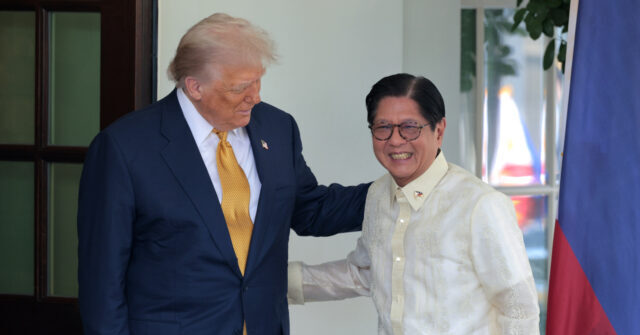President Donald Trump on Tuesday announced two new trade agreements with the Philippines and Indonesia, securing expanded market access for American goods while imposing a 19 percent tariff on imports from both Southeast Asian nations.
The back-to-back announcements came after White House meetings with Philippine President Ferdinand Marcos Jr. and Indonesian President Prabowo Subianto. The agreements mark a major push by the Trump administration to rewrite trade terms with key partners ahead of an August 1 deadline, after which tariffs are set to rise unilaterally on countries without new bilateral deals.
In the first announcement of the day, Mr. Trump said the Philippines had agreed to eliminate all tariffs on American exports, calling the country “OPEN MARKET with the United States, and ZERO Tariffs.” He added that Philippine exports to the U.S. would be subject to a 19 percent tariff and said the two countries had agreed to expand military cooperation.
“It was a beautiful visit,” Mr. Trump wrote on Truth Social. “President Ferdinand Marcos…is Highly Respected in his Country, as he should be. He is also a very good, and tough, negotiator.”
Later Tuesday, Mr. Trump unveiled a similar agreement with Indonesia, saying the country would remove 99 percent of its tariff barriers on American industrial, tech, and agricultural products. He also announced that Indonesia would supply critical minerals to the U.S. and sign deals to purchase Boeing aircraft, energy products, and farm goods—transactions Mr. Trump said would be worth “tens of billions of dollars.”
Under the agreement, Indonesian exports to the U.S. will also face a 19 percent tariff. “This Deal is a HUGE WIN for our Automakers, Tech Companies, Workers, Farmers, Ranchers, and Manufacturers,” the president wrote.
The governments in Manila and Jakarta have not yet confirmed the details of the agreements, and the U.S. Trade Representative has not released formal documentation outlining the terms.
Indonesia exported $28.3 billion in goods to the U.S. last year, while the Philippines exported $14.1 billion, according to trade data. The new tariff rates—substantially higher than previous most-favored-nation levels—raise questions about how both nations weighed the trade-offs of maintaining U.S. market access amid broader economic and strategic negotiations.
The administration has given more than a dozen countries until August 1 to strike new trade pacts or face similar tariff increases. Officials have framed the effort as a recalibration of American trade policy after decades of imbalanced arrangements, particularly with developing economies that enjoy U.S. market access without offering reciprocal terms.
With today’s announcements, both the Philippines and Indonesia become early examples of what the administration describes as its “fair and reciprocal” trade model—zero tariffs for U.S. exports, and sharply higher duties on goods entering the American market.
Read the full article here


